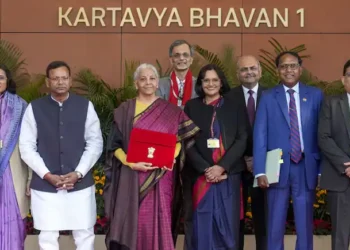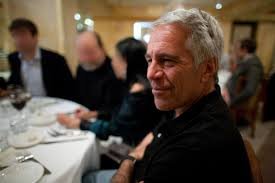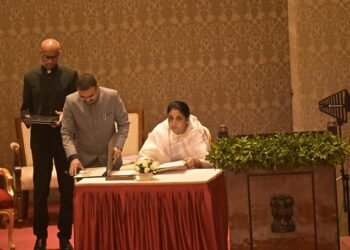With over 250 dead and 60,000 displaced since May 2023, tomorrow’s talks will test whether the Indian government can mediate fairly in one of the country’s most polarized ethnic conflicts.
BY PC Bureau
July 3, 2025 — In a crucial meeting slated for tomorrow, the Ministry of Home Affairs (MHA) will hold talks with representatives of Kuki-Zo armed group currently under the Suspension of Operations (SoO) agreement. The central issue on the agenda is whether to extend the SoO pact, a ceasefire framework signed between the Indian government and over two dozen Kuki-Zo insurgent groups, most of whom are based in Manipur’s hill districts.
The talks come amid intense opposition from powerful Meitei civil society groups, and even some internal dissent within Kuki circles.
The meeting follows a separate high-level dialogue on June 30 between the MHA and valley-based Meitei organizations, including the Coordinating Committee on Manipur Integrity (COCOMI), the Forum for Cultural and Social Harmony (FOCS), and others. These groups urged the Centre not to extend the SoO pact unless it is tied to clear conditions — especially free and secure movement along Manipur’s highways, which they claim are currently controlled or blocked by Kuki-Zo groups. They also demanded the enforcement of the National Register of Citizens (NRC) in the state, alleging that unchecked influx and territorial expansionism by Kuki armed groups threatens Manipur’s integrity.
READ: No Peace Without Alternate Roads: Kuki Rights Group Warns Centre
The Meitei organizations submitted a report claiming that a 343-km illegal road is being built along the Churachandpur–Kangpokpi axis, allegedly to link key Kuki-dominated areas and enable parallel governance. They termed it a deliberate attempt to carve out an exclusive corridor and warned the Centre that continuing the SoO in such conditions would embolden separatist elements.
In response, several Kuki-Zo civil society organizations have made it clear that while they support the SoO extension, they will not accept any new conditionalities that infringe upon what they call their fundamental right to movement and survival. They argue that since the ethnic violence broke out in May 2023, Kuki-populated areas have been effectively cut off, and any demand to disarm or restrict Kuki groups without similar accountability for Meitei militants is unacceptable.
READ: Manipur Police in the Dock Again: Cop Nabbed in Job Scam
“The SoO cannot become a tool for coercion,” one Kuki negotiator said off the record. “We are talking about restoring dignity and safety to our people, not surrender.”
The Kuki National Organisation (KNO) and United People’s Front (UPF), which are official signatories of the SoO pact, are expected to present a united front in Delhi. They seek an unconditional extension of the agreement and recognition of the Kuki-Zo people’s demand for a separate administrative arrangement under the Indian Constitution.
The backdrop to these negotiations is a state torn by deep ethnic faultlines. More than 250 people have died since May 2023, and over 60,000 have been displaced, many of them still living in camps. Violence has been cyclical and political dialogue virtually nonexistent, with both communities accusing each other of territorial aggression and state complicity.
 READ: Richard Gere Joins Dalai Lama’s 90th Birthday in Dharamshala
READ: Richard Gere Joins Dalai Lama’s 90th Birthday in Dharamshala
Today’s meeting will test not only the Indian government’s ability to keep a fragile peace intact, but also whether it can act as an impartial mediator between two deeply polarized groups. An extension of the SoO without a corresponding peace roadmap could invite further backlash in the Imphal valley. Conversely, letting the pact lapse risks triggering a dangerous vacuum in already volatile hill regions.
As Manipur remains tense, the stakes of tomorrow talks extend far beyond ceasefire clauses. They represent a litmus test for whether inclusive federalism and dialogue can still hold ground in a state where violence has displaced governance.













